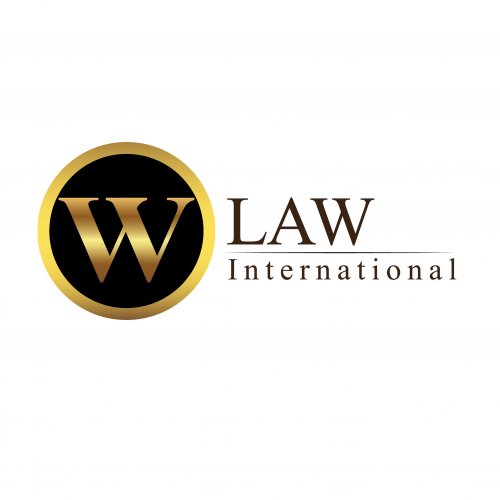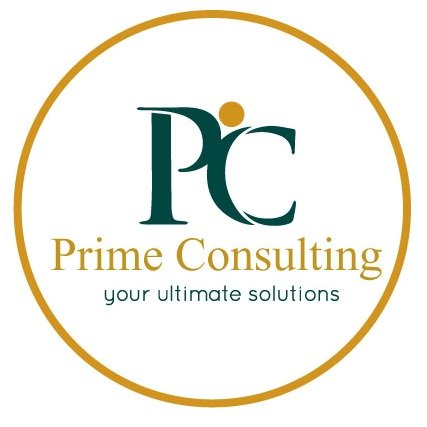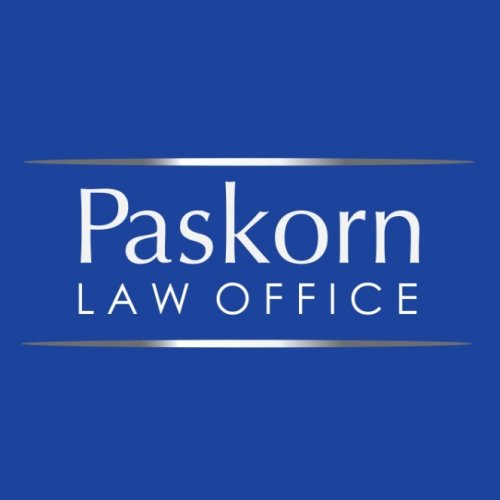Best Commercial Litigation Lawyers in Phuket
Share your needs with us, get contacted by law firms.
Free. Takes 2 min.
List of the best lawyers in Phuket, Thailand
Legal guides written by SIAM LEGAL INTERNATIONAL:
- Defamation Laws in Thailand: Criminal Charges and Civil Suits
- The State of Thailand’s Long-Term Resident (LTR) Visa Program in 2025
- The Penalties Of Not Filing Your Income Tax Return As A Foreigner In Thailand
About Commercial Litigation Law in Phuket, Thailand
Commercial litigation in Phuket, Thailand, refers to the process by which disputes arising out of business transactions are resolved through the court system. This field of law encompasses a broad range of business-related conflicts, such as partnership disputes, breach of contract claims, business torts, debt recovery, and issues involving investments or intellectual property. Phuket, being a major international tourism and business hub, sees a high volume of commercial disputes both between local businesses and involving foreign enterprises. Thai commercial litigation procedures are governed predominantly by the Civil and Commercial Code, as well as relevant procedural laws. The courts in Phuket handle all stages of litigation, from initial claims and evidence gathering to trial and enforcement of judgments.
Why You May Need a Lawyer
Commercial litigation can be complex and time-consuming, often requiring an in-depth understanding of Thai law, local business practices, and effective dispute resolution strategies. Individuals and companies may need legal advice or representation in various situations, such as:
- Breach of business contracts by suppliers, customers, or business partners
- Shareholder or partnership disputes within a company
- Debt recovery from clients or business associates
- Disputes involving intellectual property, trademarks, or trade secrets
- Claims arising from the sale or purchase of goods and services
- Enforcement of foreign court judgments in Thailand
- Allegations of fraud, misrepresentation, or unfair business practices
- Employment-related litigation involving businesses and employees
Engaging a lawyer ensures you have professional guidance through each step of the process, increases your chances of a favorable outcome, and helps protect your legal and financial interests.
Local Laws Overview
Commercial litigation in Phuket, and Thailand generally, is primarily governed by the Civil and Commercial Code and the Civil Procedure Code. Some important local legal aspects to consider include:
- Courts of jurisdiction: The Phuket Provincial Court generally hears commercial disputes unless they are within another specialized court's authority.
- Language: Court proceedings are conducted in Thai. Foreign parties will need certified translations for all documents and may require interpreters.
- Dispute resolution: Mediation is encouraged before formal litigation, and courts may require parties to attempt settlement before proceeding.
- Time limitations: There are strict legal time bars (statutes of limitations) for bringing commercial claims, typically ranging from one to ten years, depending on the nature of the dispute.
- Enforcement of judgments: Both local and certain foreign judgments can be enforced through Thai courts, though the process can be complex for foreign orders.
- Costs and fees: Court fees and legal costs are payable and, in some cases, can be claimed from the losing party but rarely cover the full expense.
- Alternative dispute resolution: Arbitration clauses are frequently used in commercial contracts and often provide a faster, confidential resolution process.
Understanding local legal requirements and court procedures is crucial for navigating commercial litigation successfully in Phuket.
Frequently Asked Questions
What is commercial litigation?
Commercial litigation is the process of resolving disputes between companies or individuals relating to business matters through the courts or arbitration. This can involve contract disputes, business torts, debt recovery, and other business-related legal issues.
Do I need a lawyer to handle a commercial dispute in Phuket?
While it is possible to represent yourself in court, commercial cases often involve complicated legal and procedural issues. A qualified lawyer can provide crucial advice, help prepare your case, and increase the chances of a successful resolution.
How long does commercial litigation usually take in Phuket?
The duration depends on the complexity of the case. Simple disputes can take a few months, while more complex cases can last one or more years, especially if appeals are involved.
What languages are used in Phuket commercial courts?
All court proceedings are conducted in Thai. Documents in other languages must be officially translated into Thai, and foreign parties may need an interpreter.
Can I enforce a foreign judgment in Phuket, Thailand?
Thai courts do not automatically enforce foreign court judgments. However, certain judgments can be used as evidence in a new Thai lawsuit, subject to Thai law. Arbitration awards may be enforceable if Thailand recognizes the arbitral body.
What is the typical cost of commercial litigation in Phuket?
Costs include court filing fees, lawyer's fees, translation costs, and expenses for witnesses or experts. Costs vary widely depending on the dispute's complexity and duration. In some instances, the losing party may bear part of the costs.
What is mediation, and is it required?
Mediation is a process where a neutral mediator assists the parties in reaching a settlement. Phuket courts commonly encourage mediation before litigation proceeds to trial, and some cases may be resolved without a full court hearing.
What happens if my business partner is not based in Thailand?
Court jurisdiction will depend on the location of the dispute and the parties involved. International elements can add complexity, so legal advice is recommended if foreign businesses or partners are involved.
Are arbitration clauses valid and enforceable in Phuket?
Yes, arbitration clauses are generally recognized and enforceable under Thai law. If your contract specifies arbitration, the courts will typically refer the dispute to arbitration instead of proceeding with litigation.
How can I prepare for a commercial lawsuit in Phuket?
Gather all relevant contracts, correspondence, invoices, payment records, and any other documentation related to the dispute. Consult with a local lawyer early to assess your legal position and develop an effective strategy.
Additional Resources
People seeking legal advice or assistance regarding commercial litigation in Phuket may find the following resources helpful:
- Phuket Provincial Court - The primary venue for commercial disputes
- Legal Execution Department - For enforcement of court judgments and orders
- Thai Arbitration Institute - For matters involving arbitration clauses
- Department of Business Development - For company and partnership information
- Law Society of Thailand - For lawyer referrals and complaints
- Phuket Lawyers Council - Provides local attorney listings and legal education
- Ministry of Justice, Thailand - General information on Thai courts and legal system
Next Steps
If you require legal assistance with commercial litigation in Phuket, consider the following steps:
- Collect all relevant information and documents relating to your dispute
- Consult with a qualified local lawyer who specializes in commercial litigation
- Discuss your options for settlement, mediation, or arbitration before pursuing formal litigation
- Familiarize yourself with court procedures and requirements
- Prepare for possible document translation and interpretation needs
- Keep detailed records of communications and legal steps taken
- Follow your lawyer’s advice regarding strategy, timing, and potential outcomes
Seeking professional legal support early can help ensure your interests are protected and improve your chances of a favorable outcome in Phuket’s commercial litigation process.
Lawzana helps you find the best lawyers and law firms in Phuket through a curated and pre-screened list of qualified legal professionals. Our platform offers rankings and detailed profiles of attorneys and law firms, allowing you to compare based on practice areas, including Commercial Litigation, experience, and client feedback.
Each profile includes a description of the firm's areas of practice, client reviews, team members and partners, year of establishment, spoken languages, office locations, contact information, social media presence, and any published articles or resources. Most firms on our platform speak English and are experienced in both local and international legal matters.
Get a quote from top-rated law firms in Phuket, Thailand — quickly, securely, and without unnecessary hassle.
Disclaimer:
The information provided on this page is for general informational purposes only and does not constitute legal advice. While we strive to ensure the accuracy and relevance of the content, legal information may change over time, and interpretations of the law can vary. You should always consult with a qualified legal professional for advice specific to your situation.
We disclaim all liability for actions taken or not taken based on the content of this page. If you believe any information is incorrect or outdated, please contact us, and we will review and update it where appropriate.

















